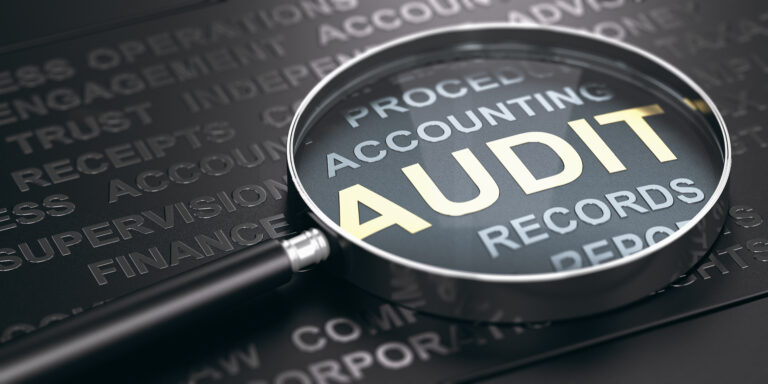Getting Your Business Up and Running
You may have heard the statistic that 20% of new businesses fail within their first two years. What’s more, 65% fail within their first ten years. Not only does a new business owner bear the burden of defining their business’s goals, financing start-up costs, and establishing efficient operations, but they must also complete various registrations, obtain licenses, and obtain other required identification numbers before the business can even open its doors. The steps required for getting your business up and running vary by state. However, some steps are common across all states. This article summarizes requirements needed to ensure your business is registered and ready for successful operation.

1. Choosing a Business Structure
One of the first steps in starting a business is choosing its legal structure and establishing it under state law. In our article How to Choose the Right Business Structure For Your Business, we discuss the most common business entity types and the pros and cons of each. Your choice of legal structure impacts many facets of how your business will operate, including how it is managed, how profits are divided among owners, how the business is taxed, and the legal liability of each owner. Therefore, careful consideration must be given to the choice of business structure. Once selected, a business can be registered as its chosen legal structure with the state. This is often done with the secretary of state.
2. Obtain an Employer Identification Number
An Employer Identification Number, also referred to as an EIN, FEIN, or federal tax ID, is a unique nine-digit number assigned by the IRS to a business for tax purposes. Often, an EIN is required to complete other steps (e.g., setting up a business bank account or credit card and obtaining a state tax ID number). Therefore, it is usually the next step right after the business has been registered. An EIN can be obtained for free by completing an Online Application and is generally issued immediately upon completion. It can also be obtained by mailing Form SS-4, Application of Employer Identification Number.
3. Obtain a State Tax ID Number
Most states require some or all businesses to obtain a state tax ID number assigned for state tax reporting purposes. This requirement depends on how the business is structured and whether it has any employees. For example, some states do not require a sole proprietorship with no employees to obtain a state tax ID number. States that assess income taxes require businesses with at least one employee to obtain a state tax ID number to collect and remit state income tax withholding.
States may also require businesses to register for a sales tax license and number. Some states only subject the sales of certain goods to sales tax. Others assess sales tax on certain services and, therefore, require even service businesses to register for a sales tax license. It’s important to research your state’s sales tax requirements carefully and determine whether your business will need a sales tax license and to collect and remit sales tax and file sales tax returns.
Many states also require employers to register for and pay other types of tax. The most common are:
State Unemployment Tax
In addition to the state tax ID registration described above, many states require employers to also register for a state unemployment tax ID number. Whereas the state tax ID number is often issued by a state’s tax department, unemployment tax IDs are often handled by the state’s labor department. Employers must then pay and file state unemployment taxes on behalf of their employees.
State Paid Leave Tax
Though a little less common than state unemployment tax, there are many states that require employers to pay or withhold some form of paid leave tax. This will often require a separate registration as well.
Workers Compensation Insurance
As of this writing, New Mexico, Washington, and Wyoming require a separate ID number to apply for workers’ compensation insurance.
Local Taxes
Some cities, towns, and counties also require employers to register, withhold and/or pay local taxes. Employers should research and understand whether any local tax obligations apply to their business. A third-party payroll provider may also help to identify and handle these requirements.
The good news is that once your business has registered for federal and state tax ID numbers, third-party service payroll providers can often handle the rest. However, it is beneficial to understand the obligations an employer has to withhold, pay, and file payroll tax returns.
4. Meeting Payroll Tax Filing Obligations
If your business has any employees, it will be responsible for withholding and paying federal and state income taxes to the correct taxing authorities, as well as filing regular payroll tax returns.
The most common payroll tax filings are:
- Form 941, Employer’s Quarterly Federal Tax return – used to report and pay federal income tax withholding as well as Social Security and Medicare tax.
- Form 940, Employer’s Annual Federal Unemployment Tax Return – used to report and pay federal unemployment tax. Employers are required to pay this tax.
- State 941 – used in many states to report and pay state income tax withholding.
- State unemployment tax and paid leave filings, depending on your state.
If you utilize a payroll service provider, be sure to ask which responsibilities they will be handling and which are your own. They may offer different tiers of service ranging from simply facilitating the payment of wages to employees and producing pay stubs, to withholding and remitting payroll taxes on the employer’s behalf but not handling tax filings, to doing all three. Any business owner should understand exactly which services they are paying their payroll company for to avoid costly mistakes.
Wrapping Up
There may seem to be many steps involved in setting up a business. Fortunately, it doesn’t have to be a long and time-consuming process. Many of these registrations can be completed quickly if relevant information is gathered beforehand. Following the steps outlined in this guide will ensure that your business is registered and ready to focus on its operational goals. Remember that our experts at My CPA are here to ensure that you meet all the requirements for your business.





